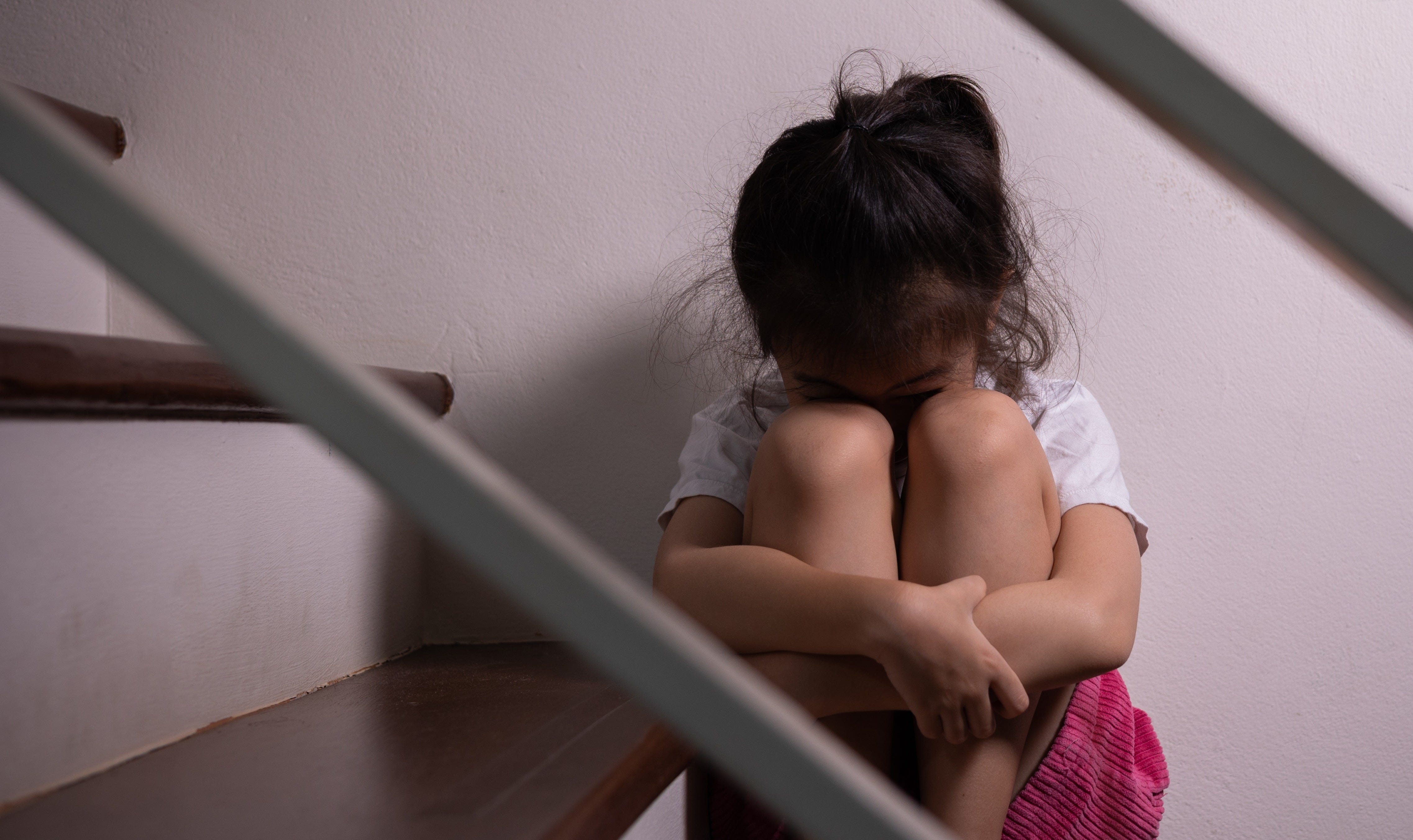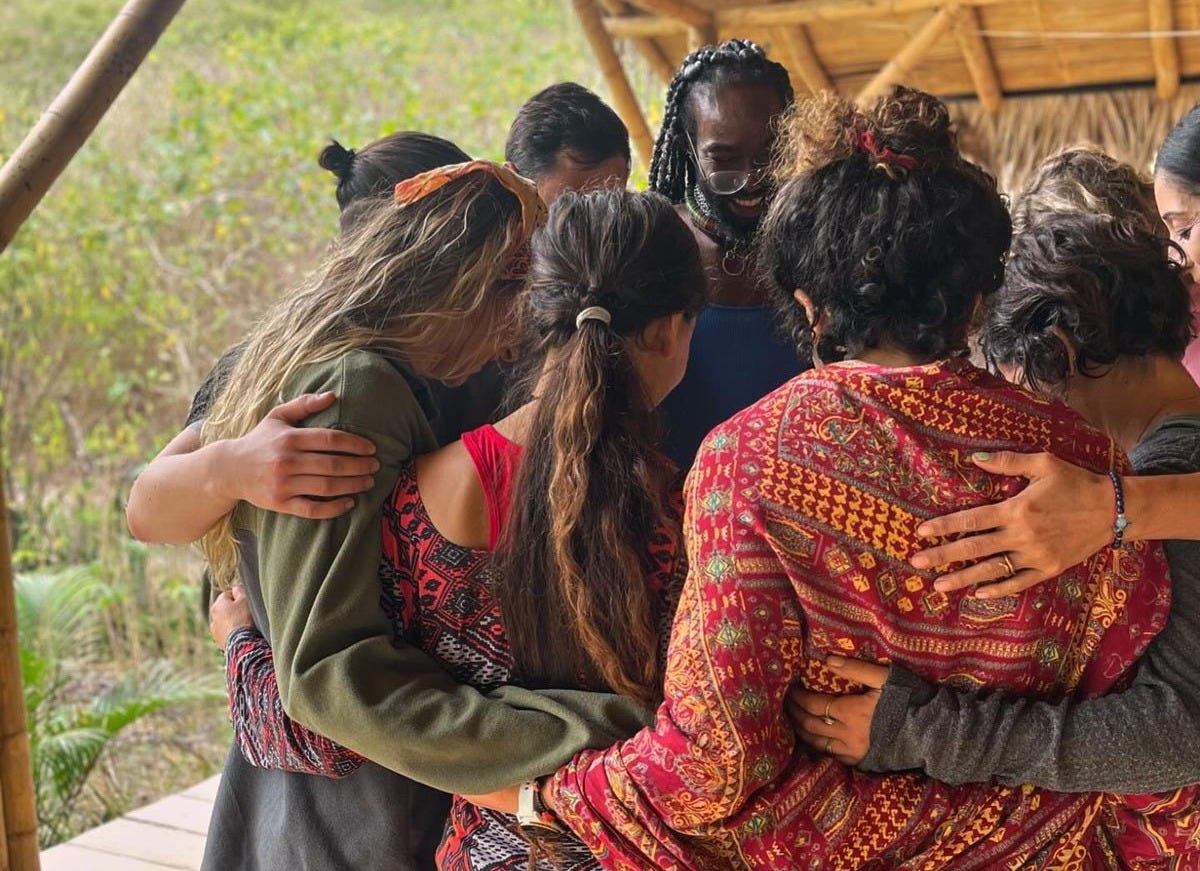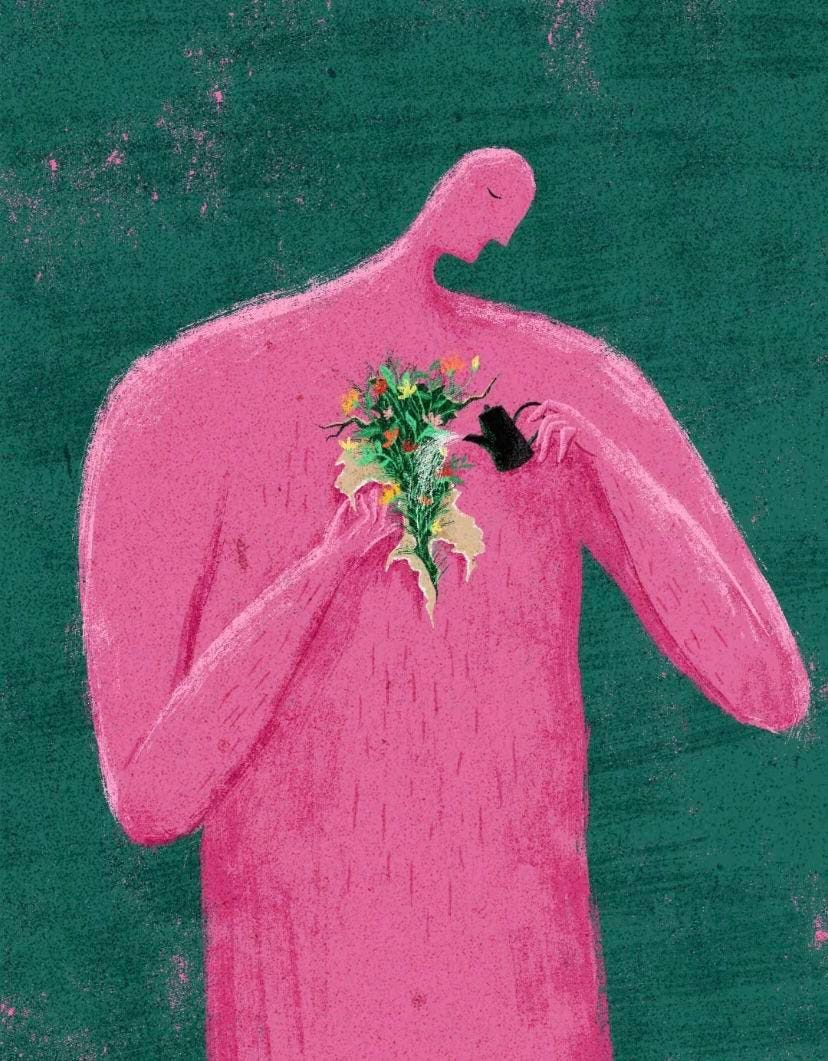Why Do We Sometimes Fear Compassion?
Plus: the wise Sri M chats with Rainn
Soul greetings, fellow travelers!
This week on the Soul Boom podcast, we’re honored to be joined by Sri M—the renowned teacher, mystic, and author whose journey has taken him from the Himalayas to classrooms and communities around the world. Aside from his renown as a global speaker, he has also authored several books (including The Friend: Mind, Body, Soul, Well-Being, a book that might be of particular interest to the the Soul Boom community).
Together, Sri M and Rainn discuss inner discipline, meditation, and the deeper purpose of human life—a perspective that invites us to consider what holds us back from living with openness and love.
Sri M’s wisdom is practical and piercing: a reminder that spirituality isn’t something abstract, but a lived reality that transforms how we meet the everyday. Listening to Sri M talk about love and discipline made us wonder: if wisdom says “open your heart,” why do so many of us treat that invitation like a spam email? Turns out, science has an answer.
The Strange Fear of Kindness
Sometimes the most revelatory soul moments come not from scripture or poetry, but from a 17-page clinical psychology paper. Liz Gilbert, in her luminous Letters from Love newsletter, recently shared such a study on why many of us recoil from compassion—even when it’s exactly what we need.
It’s by Dr. Paul Gilbert (no family ties to Liz, just a coincidence of compassion-loving Gilberts), and it explores a phenomenon that sounds absurd until you realize it describes something you wrestle with on the daily: the fear of self-compassion.
See, it turns out it’s not AI taking our jobs or alien invasions that we’re most afraid of—our greatest fear is just being kind to ourselves.
That unexpected realization struck us as the perfect reminder of what Soul Boom is all about: making sense of the spiritual truths hiding in the most unexpected places, and translating them into something we can actually use in daily life. And in this case, while the research might sound dry, the findings are anything but. So let’s dive in.
When Kindness Feels Dangerous: Why We Sometimes Fear Compassion (and How to Work Through It)
We like to think compassion is universally cherished — the soft-focus virtue beaming down from religious texts, Hollywood tearjerkers, and inspirational Instagram posts in watercolor script. Compassion is supposed to be the thing everyone wants more of. Like free Wi-Fi or extra guacamole.
And yet, Paul Gilbert and his colleagues — in a dense, data-packed, quietly revolutionary study — found something much stranger: for many people, compassion is not the warm, fuzzy balm it’s marketed as. In fact, it can feel downright threatening.
Not just compassion for others. Not just receiving it. But even offering compassion to yourself.
This is the emotional equivalent of discovering some people are allergic to oxygen. It scrambles our assumptions about human nature — and opens up a more complex, more human story about why kindness can feel like danger, and why facing that fear may be one of the most spiritually important things we can do.
The Triple Fear
The researchers broke compassion down into three directions:
For Self – Being kind and supportive to yourself when you screw up or suffer.
From Others – Letting care and warmth from other people actually land.
For Others – Extending that same compassion outward to those around you.
They then built self-report scales to measure fear in each domain. And here’s the kicker: fear of self-compassion and fear of receiving compassion from others were highly correlated. People who struggle to be kind to themselves often find it just as difficult to accept kindness from others.
Think about that for a second. We tend to imagine that if someone can’t be nice to themselves, at least they can let others in. Or vice versa. But the data shows those fears are often twins — both part of a broader difficulty with what Gilbert calls “affiliative emotions”: the warm, connecting, oxytocin-infused feelings that tell us we’re safe with one another.
When Warmth Burns
Why would anyone fear compassion?
The short version: because for some, compassion got wired to danger.
If you grew up in an environment where moments of joy, closeness, or kindness were followed by punishment, neglect, or chaos, your nervous system learns an association: this feeling is the prelude to pain.
One participant in the study remembered that as a child, whenever she felt happy, her mother would turn angry or critical. Another found that in moments of happiness, she’d be ambushed by intrusive thoughts of losing her loved ones. Over time, happiness — and by extension the warmth of compassion — became the cue for fear, like the opening notes of the Jaws theme.
From an attachment perspective, this makes sense. Our brains build a kind of “emotional operating manual” based on early relationships. If closeness meant volatility, then the adult nervous system may slam the shutters when someone tries to get close — even if, logically, we know they’re safe.
The Self-Criticism Connection
Gilbert’s team found a powerful link between fear of compassion and self-criticism. Not just the occasional “Ugh, I’m an idiot” when you forget your password for the seventeenth time. This is deeply entrenched self-criticism — the Inadequate Self and Hated Self modes that show up in the data.
Self-criticism, it turns out, isn’t just about thinking badly of yourself. It’s also about being wired to reject the very thing that could soothe you. That’s why, in the study’s regression analysis, self-criticism emerged as the single strongest predictor of depression, overshadowing all the other variables.
For the Soul Boom crowd, this is where it gets interesting spiritually. Many traditions speak about a divine or universal love — a benevolent force at the core of existence. But if our internal wiring treats love as threat, then we can sit in the presence of that love and feel… nothing. Or worse, panic. It’s a sobering reminder that opening to the sacred often requires healing our ability to receive.
Fear of Compassion for Others
Here’s the surprising part: while the self-directed fears were the strongest, the study also looked at fear of offering compassion to others.
Why would that be scary? A few reasons:
Fear of being taken advantage of — the idea that kindness is weakness, or that people will exploit you if you let your guard down.
Moral judgments — the worry that compassion might “let someone off the hook” for bad behavior.
Emotional overwhelm — being swamped by others’ distress, leading to burnout or “compassion fatigue.”
Attachment style plays a role here too. Avoidantly attached individuals may see others’ distress as weakness or feel uncomfortable with emotional intimacy. Anxiously attached individuals may over-give compassion in hopes of being liked, only to feel depleted.
This is why compassion isn’t just a warm bath. It’s an active, sometimes costly choice. And for people carrying wounds of betrayal, loss, or chronic over-extension, even thinking about being compassionate can feel exhausting or unsafe.
Why This Matters for Healing
Here’s the key insight: it’s not just the absence of compassion that matters — it’s the resistance to it.
In other words, a person might not simply lack compassionate experiences; they may actively avoid them. And this avoidance is self-reinforcing: the less we engage with compassion, the more alien it feels, and the more threatening it becomes.
This has huge implications for therapy, relationships, and spiritual growth.
In therapy, if a client can’t tolerate feelings of warmth or care — from themselves or their therapist — certain interventions will bounce right off. It’s like trying to plant seeds in soil that’s been chemically treated to repel water. The first step isn’t planting; it’s rehabilitating the soil so it can even accept moisture.
What This Looks Like in Real Life
To make this concrete, picture a friend who always changes the subject when you compliment them. Or the person who cares for everyone else but won’t let anyone help them. Or the high-achiever who collapses in shame at the smallest mistake.
Now imagine these patterns not as quirks, but as protective strategies — the emotional equivalent of a guard dog that attacks the mailman and the pizza delivery guy, because it’s been trained that any knock on the door is a threat.
The trouble is, this guard dog also chases away the friends bringing soup when you’re sick.
Compassion as an “Affiliative Emotion”
One of the most important ideas in Gilbert’s work is that compassion belongs to a special category of positive emotions — affiliative emotions. These aren’t about excitement or achievement; they’re about connection and safeness.
Biologically, they run on different neurochemistry (think oxytocin and endorphins rather than adrenaline and dopamine) and serve a different evolutionary purpose: to calm the threat system and signal that it’s safe to rest, bond, and repair.
If you’ve ever had a moment where someone’s presence made you exhale in a way you didn’t know you needed, that’s affiliative emotion at work. And if you’ve ever felt your chest tighten when someone tried to offer you that kind of care — well, that’s the fear of compassion.
The Cultural Layer
We’d be remiss not to mention the broader culture here. We live in a time that often treats vulnerability as a liability, busyness as a badge of honor, and “independence” as the highest good. Compassion — especially self-compassion — can be painted as indulgent or weak.
Gilbert warns that as societies become more competitive, fear of compassion could actually increase. That’s not just bad news for our individual mental health; it’s bad news for our ability to address collective problems, which require a capacity for empathy, solidarity, and care across differences.
Working with the Fear
So how do we move through this? The paper doesn’t offer a step-by-step “cure,” but Gilbert’s broader work in Compassion-Focused Therapy gives us some guideposts:
Normalize the fear – Recognize that if compassion feels dangerous, there’s likely a good reason rooted in your history. You’re not “broken”; you’re adapted.
Start small – Work with micro-moments of compassion that feel tolerable. This could be something as simple as noticing when you speak to yourself harshly and softening the tone slightly.
Differentiate compassion from weakness – Learn to see compassion as a strength: the courage to approach suffering rather than avoid it.
Engage the body – Because affiliative emotions are physiological, practices that involve posture, breath, and imagery can help rewire the nervous system to associate warmth with safety.
Address self-criticism directly – Since self-criticism is such a strong predictor of depression (and a close companion to fear of compassion), learning self-reassurance is key.
The Spiritual Dimension
From a Soul Boom perspective, all of this points to a deeper truth: compassion isn’t just a moral virtue or a nice interpersonal skill. It’s a spiritual muscle — one that connects us to each other and to whatever we believe is ultimate.
But like any muscle, it can atrophy. And sometimes, before we can strengthen it, we have to heal the injury that makes movement painful.
The mystics of every tradition talk about the paradox of divine love: it’s infinite, unconditional — and terrifying to the parts of us that have learned love is conditional, scarce, or unsafe. To open to it is to risk being changed.
That risk is exactly why the work matters.
A Closing Invitation
The next time someone offers you help, or you feel the urge to be harsh with yourself, pause and notice: is there a flicker of fear? A tightening in the gut? A voice that says, don’t go there?
What would it be like to experiment — just a little — with leaning in instead of leaning away?
We’re not talking about swinging the doors wide open to anyone and everyone overnight. We’re talking about gentle exposure. Letting compassion in, in doses your nervous system can handle. Offering it outward where it feels safe enough. Extending it inward in moments you’d usually skip.
The research tells us that over time, those micro-moments can re-teach the brain that kindness is not a setup for pain. They can re-activate the affiliative systems that regulate threat, making it easier to connect — with ourselves, with others, with the sacred.
And if that feels daunting, remember: the fear itself is part of the path. You don’t have to eradicate it before you start. You just have to take the next, small, compassionate step.
Because while fear can close us off, compassion — even the tiniest bit we allow — has a funny way of finding the cracks in our armor and growing from there.
What do you think beloved Soul Boomlets? What’s one small way you could experiment with compassion this week — toward yourself, toward someone else, or in receiving it — even if it feels a little uncomfortable?









I cannot even say how moving this post was for me! I have centred my personal and professional endeavours around compassion, advocating for the power it holds to uplift our world and ourselves. Trying to instil awareness about how compassion is what binds all sentient beings - people, animals, nature - and connects us to each other and beyond. But self-compassion is the greatest challenge, for myself, and reading this was a beautiful insight into the importance of healing this ... not just for myself but for my presence in an interconnected world where I also wish to embody compassion outwards. The power of recognizing how compassion directed inwards is so beautifully connected to how we bestow compassion outwards is deeply moving. Reading this has sparked something in me that will (white literally) impact how I shape my compassion work moving forward, both for myself personally and in my animal welfare work moving forward. This will be an essay I come back to very often moving forward, and I'm so grateful for the work you do in this realm! xoxo
This was a great read, and it makes so much sense from a psychological perspective. I know in my own spiritual journey, after a childhood full of receiving messages that I was "not good", accepting that I am loved by the Creator has been a big step. I now believe it's an essential step to reclaiming our wholeness. For the longest time, I didn't accept that, and it was a real barrier to healing.